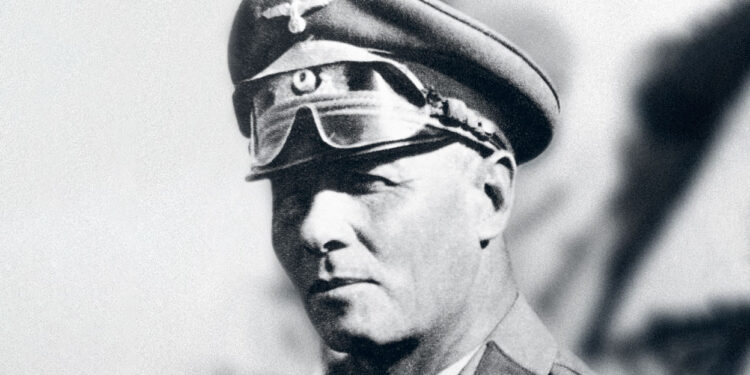Erwin Rommel, known as the “Desert Fox,” was a highly skilled German military officer and one of the most renowned commanders of World War II. Born on November 15, 1891, in Heidenheim, Germany, Rommel’s tactical brilliance and audacity on the battlefield made him a formidable opponent for the Allied forces.
Rommel’s most significant contributions to the war were in the North African campaign, where he commanded the German Afrika Korps. His innovative use of armored and mechanized forces, combined with swift and aggressive tactics, allowed him to achieve remarkable victories against the British forces led by General Bernard Montgomery. Rommel’s mastery of mobile warfare earned him the respect and admiration of both his allies and adversaries.
Despite his success, Rommel faced numerous challenges in the harsh desert conditions. Supply lines were stretched thin, and resources were scarce. Nevertheless, he led his troops with remarkable ingenuity and adaptability. His ability to deceive the enemy and launch surprise attacks, coupled with his personal charisma and hands-on approach to leadership, made him a highly respected figure among his soldiers.
Rommel’s reputation as a military genius and his successes in North Africa led to his appointment as commander of the German forces defending the Atlantic Wall against the anticipated Allied invasion. However, the overwhelming strength of the Allied forces on D-Day, June 6, 1944, proved insurmountable, and Rommel’s defenses ultimately failed to halt the Allied advance.
In the later stages of the war, Rommel’s disillusionment with Hitler’s leadership grew. He was implicated in the July 20, 1944, plot to assassinate Hitler, although his involvement remains a topic of debate. Under the threat of being implicated and facing public trial, Rommel chose to commit suicide on October 14, 1944.
Rommel’s legacy is one of military brilliance, professionalism, and integrity. His tactical innovations and leadership qualities continue to be studied by military strategists and historians worldwide. While he fought for a morally bankrupt regime, Rommel himself is often regarded as a soldier who adhered to a code of honor and chivalry, making him a unique and complex figure in World War II history.



Recent Comments